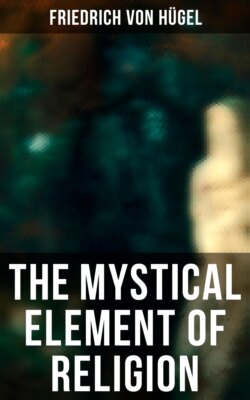Читать книгу The Mystical Element of Religion - Friedrich von Hügel - Страница 53
На сайте Литреса книга снята с продажи.
1. The religious temper longs for simplification.
ОглавлениеTo take the last point first. How obvious and irresistible seems always, to the specifically religious temper, the appeal to boundless simplification. “Can there be anything more sublimely, utterly simple than religion?” we all say and feel. In these regions, if anywhere, we long and thirst to see and feel all things in one, to become ourselves one, to find the One Thing necessary, the One God, and to be one with Him for ever. Where is there room here, we feel even angrily, for all these distinctions, all this balancing of divers faculties and parts? Is not all this but so much Aestheticism, some kind of subtle Naturalism, a presumptuous attempting to build up bit by bit in practice, and to analyze part from part in theory, what can only come straight from God Himself, and, coming from Him the One, cannot but bear the impress of His own indistinguishable Unity? And can there be anything more unforcedly, unanalyzably simple than all actual religion,—and this in exact proportion to its greatness? Look at St. Francis of Assisi, or St. John Baptist; look above all at the Christ, supremely, uniquely great, just because of His sublime simplicity! Look at, feel, the presence and character of those countless souls that bear, unknown even to themselves, some portion of this His impress within themselves, forming thus a kind of indefinitely rich extension of His reign, of the kingdom of His childlikeness. Away then with everything that at all threatens to break up a corresponding simplicity in ourselves! Poverty of spirit, emptiness of heart, a constant turning away from all distraction, from all multiplicity both of thought and of feeling, of action and of being; this, surely, is the one and only necessity for the soul, at least in proportion to the height of her spiritual call.
